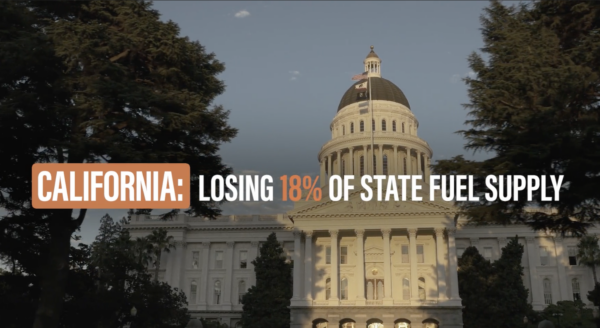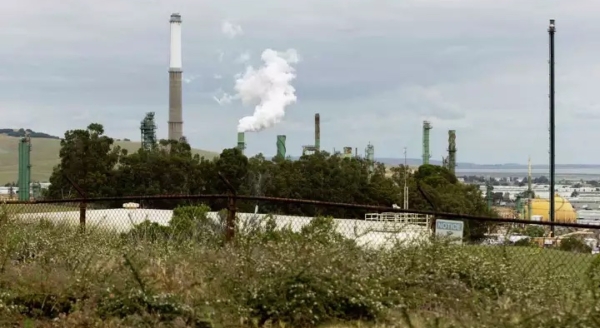“The governor is playing fast and loose with the rhetoric.”
“Perhaps the governor should buy a mirror.”
As Governor Newsom continues his daily tirades against oil companies, third party experts are correcting the record with facts explaining how California’s energy policies are causing higher prices at the pump.
Patrick De Haan, market analyst and fuel forecaster with GasBuddy:
“Newsom is wrong. What we’re seeing is simply misinformation. This is supply and demand related … Strict environmental guidelines make it hard to meet demand when there’s a cutoff in supply.”
Severin Borenstein, director of the Energy Institute at the University of California at Berkeley:
“The reality is that as we phase out gasoline, we’re going to have fewer and fewer California refineries that make this blend. And that’s going to make us more and more vulnerable to any one refinery, if they go out unexpectedly, to see a big price shock.”
“We ignore this issue entirely, until there’s a big price spike. And then everybody runs around yelling about how outrageous this is, instead of actually having a serious policy discussion of what’s the right way to deal with this … A windfall tax isn’t likely to raise or lower gas prices, but it would be very difficult to actually implement.”
Amy Myers Jaffe, former executive director for energy and sustainability at UC Davis:
“Do I have the new infrastructure fast enough before I retire the old infrastructure, and what happens if you’re in the middle? The way we’re doing it now is you just let the fuel costs go up and then we leave poor people with no ability to get anywhere. And then [politicians] grandstand against the oil companies — that’s not a solution.”
“This is tin foil hat stuff. There is zero evidence of a price-rigging conspiracy. Meanwhile, even your own experts agree that gasoline prices are high in California because you & your allies have blocked the expansion of oil refining capacity and production.”
“I have debunked your claims in detail and quoted from the state’s own experts, who have for decades pointed to the lack of oil refining capacity as the main reason for California’s comparatively high gasoline prices.”
Shon Hiatt, associate professor of business at USC focused on the energy industry:
“We’re operating now in a tight market. So, if one refinery goes off to do maintenance, the prices are going to jump, because we don’t have much slack.”
“I think in California, expect volatility. The Legislature has put forward policy for the last 15 years focused entirely on reducing carbon emissions, to the neglect of reliability and prices.”
David Hackett, energy expert who served on California’s Petroleum Market Advisory Committee in 2015:
“The state has set aspirational goals for the energy transition, but it’s not very well planned. [The recent spike in gas prices] could be an early warning system of California’s fate if policymakers or businesses don’t take action.”
Ed Hirs, energy fellow for the University of Houston:
“The real issue [in California] is you’ve lost several hundred thousand barrels a day of refining capacity. And to make up that supply, people are having to shift supplies from other parts of the nation, and that just costs money.”
“The governor is kind of playing fast and loose with the rhetoric and the facts. It really is an issue of supply.”
Californians can’t afford a governor who ignores experts, refuses to take responsibility for his own energy policies, and leaves the state vulnerable to volatile price spikes driven by supply shortages.
Newsom’s false, blame-shifting rhetoric won’t provide relief from high gas prices. Policies that support local oil production and in-state refinery capacity will.


